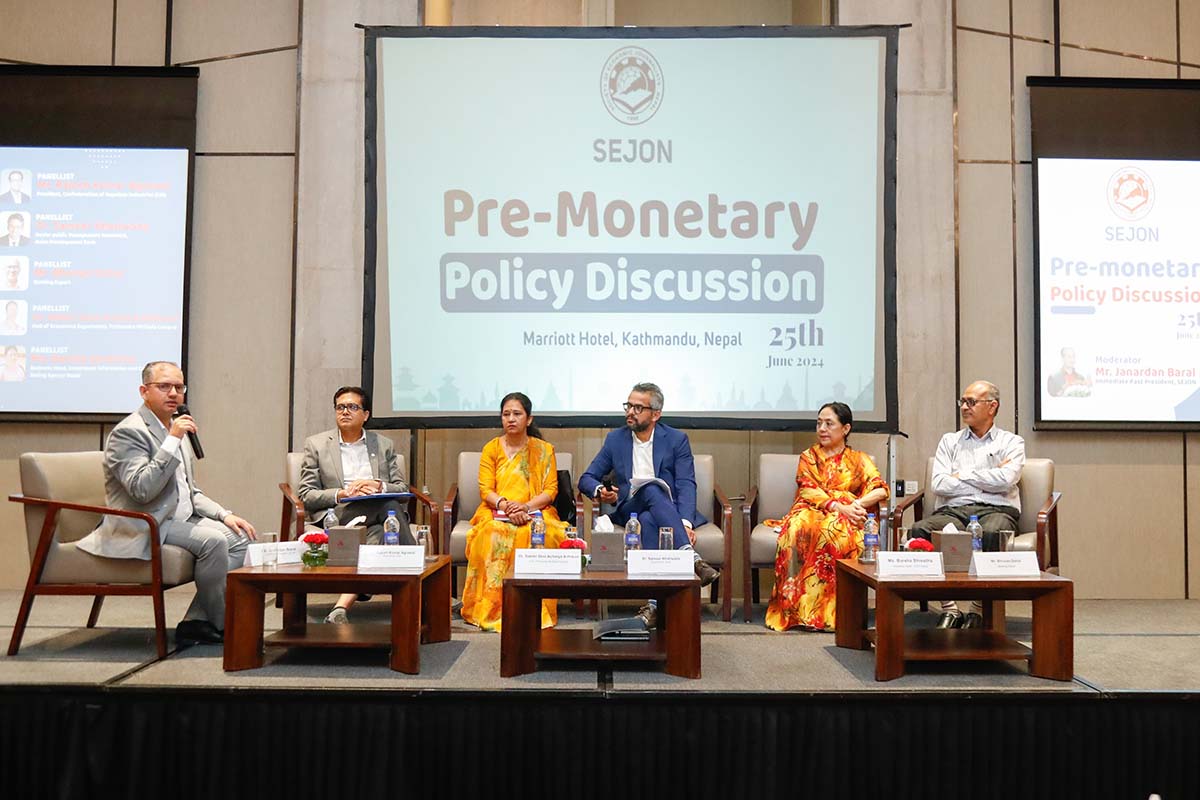
KATHMANDU: Nepal Rastra Bank (NRB) has announced its plan to formulate monetary policy for the upcoming fiscal year 2024/25, taking into account the new-generation reform programmes introduced by the Government of Nepal through the budget.
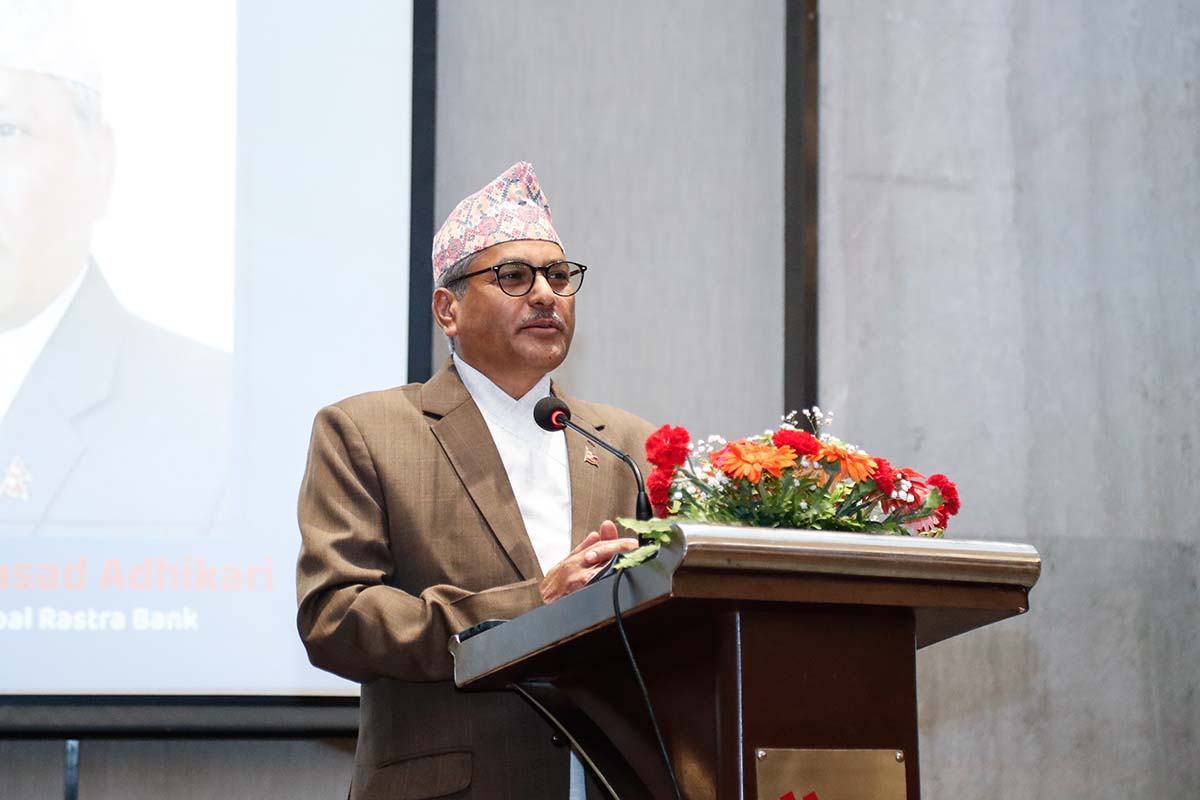
Speaking at the 'Pre-Monetary Policy Discussion' programme organised by the Society of Economic Journalists-Nepal (SEJON) in Kathmandu, on June 25, NRB Governor Maha Prasad Adhikari shared this information. He emphasised that while borrowers may desire a more lenient monetary policy, excessive borrowing beyond capacity could lead to future economic challenges. Governor Adhikari acknowledged that monetary policy has its limitations and cannot solve all debtor-related issues.
The NRB's focus remains on increasing domestic production. As part of this strategy, loans are prioritised for agriculture, energy, and small and medium-sized enterprises (SMEs), according to NRB Governor Adhikari. The central bank aims to support sectors that contribute to the country's economic growth.
Adhikari said that the NRB tailors its monetary policy based on data. During periods of high inflation, a tight monetary policy is implemented, while low inflation prompts a more flexible approach, Adhikari asserted. He also stressed the need for increased regulation to hold banks and financial institutions (BFIs) accountable.
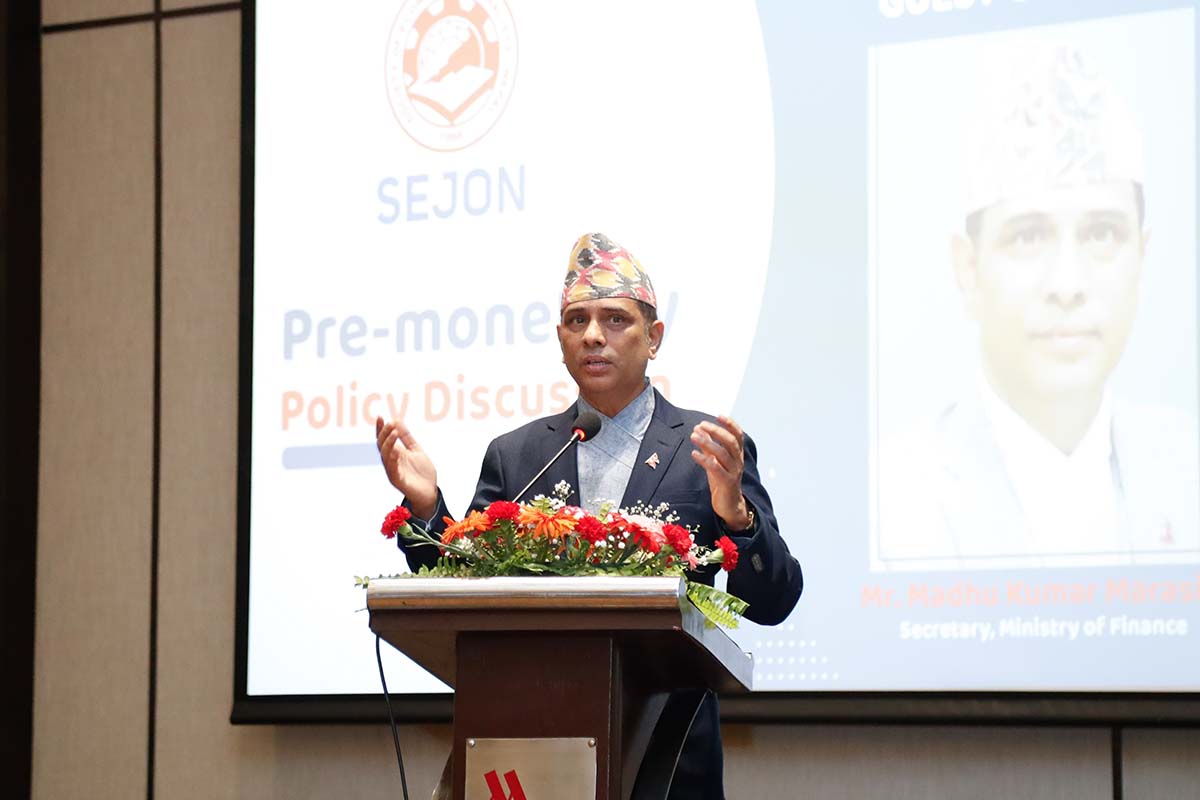
Speaking at the programme, Finance Secretary Madhu Kumar Marasini highlighted that the monetary policy for the upcoming fiscal year will align with the objectives and programmes outlined in the budget, aiming for 6% economic growth rate.
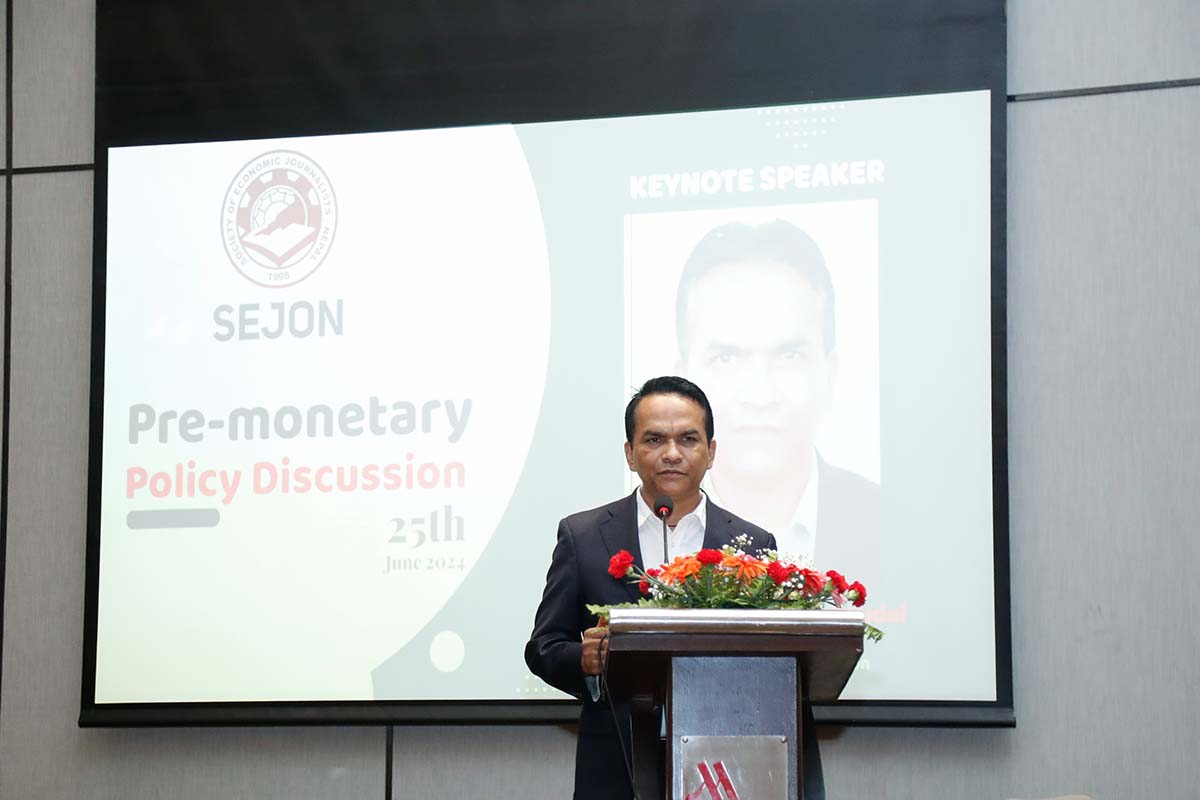
Economist Biswo Nath Poudel, keynote speaker at the programme, pointed out that BFIs currently hold substantial liquidity, with approximately Rs 6 trillion in deposits and Rs 5.1 trillion in loans disbursed. Despite this liquidity, Poudel emphasised the importance of directing banking operations effectively.
Poudel cautioned against risks associated with loans granted for real estate and unproductive sectors. He urged the central bank to adopt greater flexibility in capital loan policies and enhance regulation, particularly in the microfinance sector.
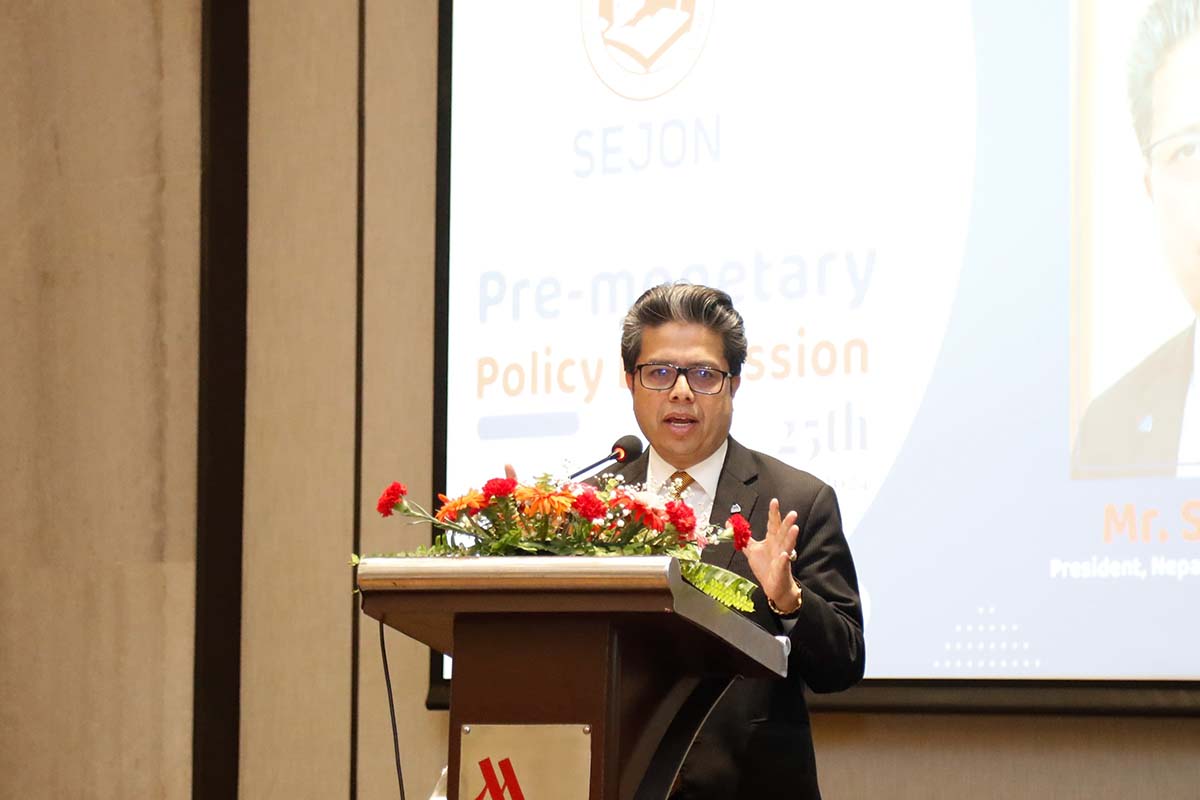
Nepal Bankers' Association President Sunil KC emphasised the private sector's role in safeguarding banks. "While some banks appear profitable, over 10 commercial banks report negative distributable profit," KC said, expressing concerns about declining return on equity (ROE) over the past three years. He called for a serious evaluation of the banking sector's sustainability. KC also suggested promoting the construction sector, which faces its own challenges.
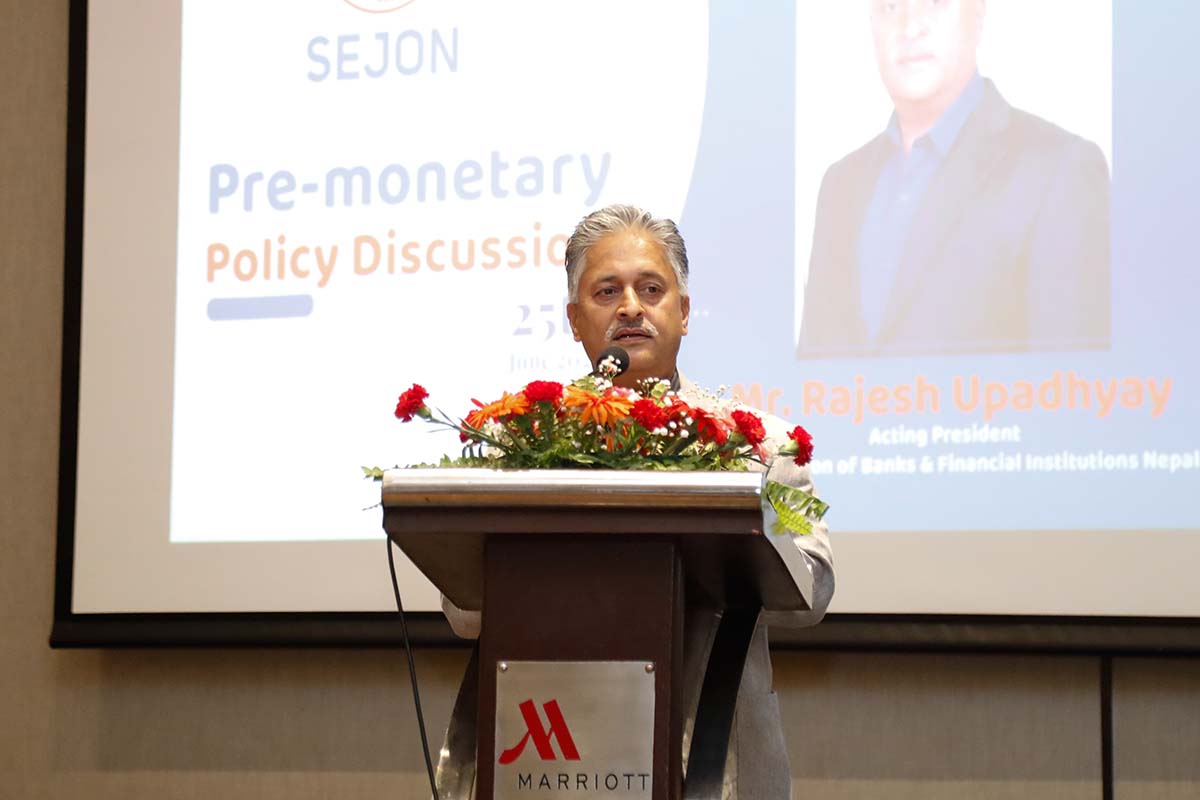
Confederation of Banks and Financial Institutions Nepal (CBFIN) Senior Vice President Rajesh Upadhyay highlighted rising costs for banks due to deposit requirements. He stressed the need for the next monetary policy to address these pressures effectively.
Youth economist Sameer Khatiwada emphasised that the central bank should not only consider external sector balance, price stability, and trade but also focus on production and employment when formulating monetary policy.
Sabitri Devi Acharya Adhikari, Associate Professor at Tribhuvan University, underscored the importance of increasing government spending.
Confederation of Nepalese Industries (CNI) President Rajesh Kumar Agrawal expressed concern about the private sector's lack of confidence. Efforts to prove that loans taken by the private sector have been misused have contributed to this scepticism.
-1720168673.jpg)
Agrawal further emphasised the need to remove the base rate, mentioning that the current policy rate set by the central bank appears ineffective.
Barsha Shrestha, Business Head of Nepal Credit Rating Agency, drew attention to the high loan-to-deposit ratio within banks. She recommended that the central bank periodically reduce this ratio. Additionally, given the recent surge in bank interest rates, Shrestha proposed designing the next monetary instrument to prevent further rate declines. She also advocated for greater representation of independent directors on the boards of BFIs.






-1768554695.png)